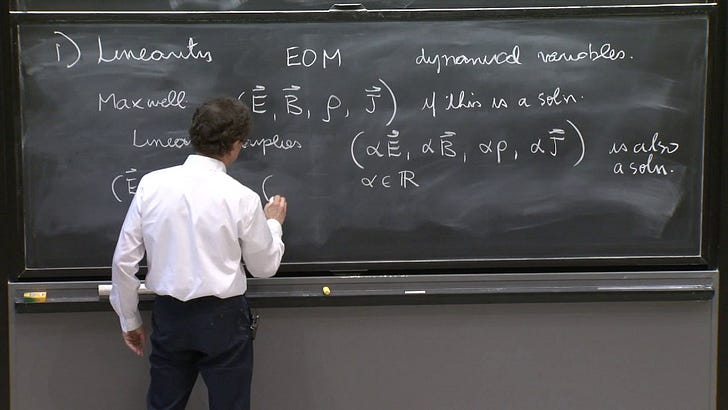Essential Resources for Beginners: Your Guide to Learning Quantum Technologies
Free quantum technologies learning resources for begginers
Want to enter the world of quantum and don't know where to start? 🙄 MIT offers 3 free courses especially for you:
Quantum Physics I (MIT 8.04): This course covers the basics of quantum mechanics:
The wave and particle nature of light
Experiments related to quantum mechanics (Mach-Zehnder interferometer, Compton scattering, etc.)
Wave packets and the Schrödinger equation
Operators and observables
Potentials
The hydrogen atom
As a physics course usually offered in the second year of an engineering or science degree, it requires prior knowledge in linear algebra (though there is a review of Hilbert spaces and Hermitian operators), calculus, and differential equations. Course website: https://ocw.mit.edu/courses/8-04-quantum-physics-i-spring-2016/
YouTube lectures:
2. Quantum Physics II (MIT 8.05): This course delves deeper into the topics from the previous course and provides the basic background for Quantum Information Theory:
Ket and Bra notations
Deeper understanding of uncertainty
Quantum dynamics
Tensor products
Angular momentum
The required background for this course is the previous course (MIT 8.04), and the necessary mathematical background is taught during the course. Course website: https://ocw.mit.edu/courses/8-05-quantum-physics-ii-fall-2013/
YouTube lectures:
Quantum Physics III (MIT 8.06): This course mainly deals with perturbation theory in particles, providing a deeper physical understanding for those interested. The required background for this course is the previous course (MIT 8.05). Course website: https://ocw.mit.edu/courses/8-06-quantum-physics-iii-spring-2018/. The course websites include Lecture Notes, making the courses accessible to those who prefer learning from written material rather than lectures, as well as exercises and exams for those who want to practice and delve deeper.
These courses allow you to learn the necessary physical foundation for delving into quantum technologies.
If you want to understand how the quantum physics is implemented to develop quantum technologies, we suggest you to take a quantum optics course. The course is relatively advanced and requires prior knowledge in quantum physics and electromagnetic fields/optics.
The course covers topics such as:
Quantization of the electromagnetic field
Coherent states
Squeezed states
Heisenberg pictures
Homodyne detection
Link to the Dropbox folder with lecture notes: Dropbox Lecture Notes Link to the YouTube lectures:
Also, here are lecture notes for several courses from universities abroad in the field of quantum information and complexity:
MIT 6.845 - Quantum Complexity Theory:
This course deals with the computational capabilities and limitations of quantum computers: computational classes, capability bounds, communication complexity, proofs, etc.
Ph219/CS219 - Quantum Computation:
This course covers various topics in quantum computation - fundamentals of quantum information theory, computational aspects (complexity classes, circuit complexity), and various algorithms (Shor, search, simulations, etc.).
Chem/CS/Phys191 - Qubits, Quantum Mechanics, and Computers:
This is an introductory course in quantum computing that includes physical background (quantum states, entanglement, measurements, etc.), quantum circuits, open quantum systems, algorithms (error correction, Grover's algorithm, Fourier transform, phase estimation), and two bonus lectures on hardware.
Enjoy! 🙂



